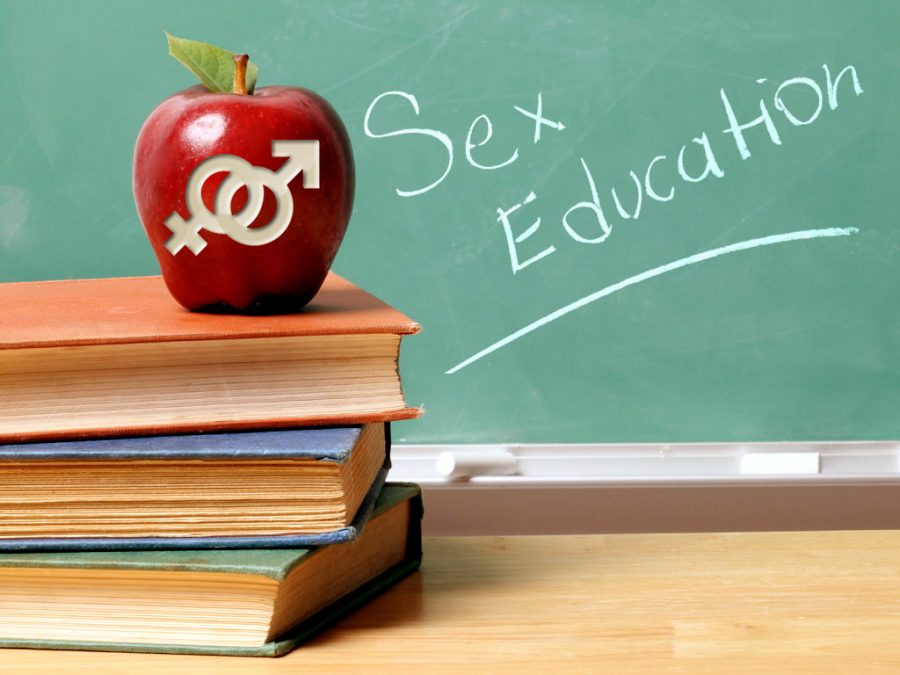The Right to a Comprehensive Sex Education
The Feminist Student Association at Southern Lehigh has been working to encourage the school district to offer comprehensive sex education over the current abstinence only curriculum.
Young, maturing people all across the world face a similar predicament as they reach a level of higher education, and that is a lack of knowledge when it comes to sex education. Without proper knowledge, high school students then are inclined to approach their adult lives with a negative, limited perception of sexual health and relations.
For over a decade, the U.S. government has limited funding to abstinence-only sex education, including some sexually transmitted illnesses (STIs) that can put one can at risk. In evaluating the limited knowledge they receive from this unrefined curriculum, students have begun to raise the question: How can students become more knowledgeable in the classroom about their sexual health and rights?
The answer lies in a curriculum approach known as Comprehensive Sexuality Education (CSE), defined by the Guttmacher Institute as education that “seeks to equip young people with the knowledge, skills, attitudes and values they need to determine and enjoy their sexuality—physically and emotionally, individually and in relationships.” The goal of this diverse curriculum, designed to encourage a transition away from abstinence-only education, is to promote lessons that engage teenagers in understanding how to make appropriate decisions when it comes to sexual relationships, as well as their rights concerning their sexual health.
“I think it all comes down to providing our students with the best possible education in order for them to live healthy, productive lives,” health teacher Mrs. Megan Kane said. “Students make decisions every day that will impact their lives forever. We need to prepare and educate them to make the best possible decisions for them to be successful.”
The Feminist Student Association (FSA) at Southern Lehigh High School is currently making efforts to change the district’s current abstinence-only education policy to align more directly with the CSE curriculum. Lessons would include a range of topics including decision making, understanding dating violence and relationships, gender and orientation, sexual/reproductive health, enjoyment and consent, and the diversity of sexuality.
“Our school is one of the only ones in the area that teaches abstinence still, and that is such a problem,” junior FSA officer Brianna West said. “You can’t just tell kids not to have sex, because they’re gonna do it anyway, and then if they don’t know what the proper precautions are, or consequences, something bad is going to happen, and they’re going to feel isolated and be in danger.”
Implementation of this more diversified curriculum would help engage young people in learning about sex in a more open forum and result in a deeper, more thorough understanding around certain topics. The stigma surrounding the education aspect, and sex itself, has the potential of being broken with this more effective, explanatory curriculum.
“I think people are aware [of the flaws of sex ed curriculum], but it’s an awkward subject, so a lot of people are not like, ‘Oh, I want this now, I want to learn about, you know, condoms,’” junior co-president of FSA Ava Lang said. “It’s awkward, but I think people are like, ‘Well, why don’t we talk about that, where was that in my life?’ Some people don’t learn about it.”
Although CSE may not be implemented into health classes in our school tomorrow, the fight for more than an abstinence only education is one that members of FSA are making a priority and hope to see bring up in more conversations. Young people deserve a healthy lifestyle when it comes to sex and the prevention of other harmful STIs. A comprehensive sex education would provide answers to the questions that students may hesitate to ask or would not learn within the limits of an abstinence-only education.
Senior Emily Mackin is a first-year staff reporter for the Spotlight. She is also the Edtior-in-Chief of the Solehian yearbook, and is involved in Key...


